Building on a successful cooperation on last year’s Europe Day, the European Tourism Academy supported the EUROPEAN COUNCIL ON TOURISM AND TRADE (ECTT) to organize the Europe Day on Tuesday , 9 May 2017.
The reception was attended by over 1000 people from including prominent guests such as government representatives, diplomatic corps in Bucharest, business leaders, academia, and the media.
The welcoming speech was delivered by European Council on Tourism and Trade President-Professor Dr. Anton Caragea.
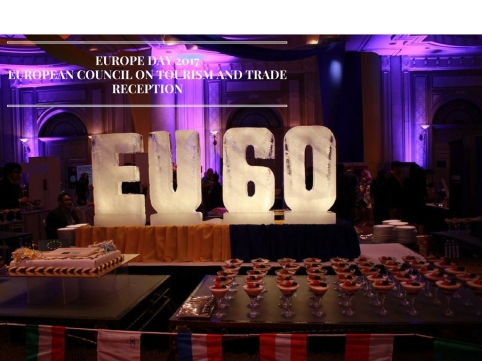
Honourable Ministers,
Honourable Members of Parliament,
Excellencies, Members of the Diplomatic Corps,
Colleagues, fellow Europeans and friends of Europe,
Ladies and gentlemen,
Namaste, Salam Alaykum, Good evening, Bonsoir, and a very warm welcome to you all to the 2017 Europe Day celebrations.
First, I would like to express my gratitude to Academicians Mircea Constantinescu and Ionut Costea, Directors of EUROPEAN TOURISM ACADEMY, for kindly agreeing to make available this splendid hall for today’s gathering.
We thought that this year it would be great to bring Europe closer to academicians and professionals and leaders of all walks of life, and to hold our celebrations in this excellent establishment.
Thank you very much to everyone who has worked so hard to make this happen.
Today, 9 May, is Europe Day.
On this day in 1950 Robert Schuman, the French Foreign Minister, called on the nations of Europe to unite and make war on our continent unthinkable.
His message of peace and unity is as relevant as ever.
The dreams of our founding fathers have become a reality, and Europeans live together in peace and prosperity, bound together by principles of democracy and human rights.
Yet, as anyone who follows international news knows, the European Union faces considerable challenges, and I do not want to gloss over these.
But despite all our difficulties the Europe represents the most successful process of regional integration, and remains the richest continent in the world.
In no other place is there so much freedom – freedom to speak our mind, freedom to move, freedom to pray and not to pray, freedom to love, freedom to vote and freedom to choose our own destiny.
Everywhere in the world Europe is a major trading partner, a major investor and we are proudly launching here BEST OF EUROPE/BEST OF WORLD program.

Climate change is another example of Europe prowess and a dear subject to myself as Ambassador for World Protected Areas .
On 22 April 2016, 175 countries signed the Paris Agreement in New York. Fifteen countries deposited their instruments of ratification on the same day sending a signal to the international community on the paramount importance of the implementation of the Agreement.
Our Ambassador office is committed to continue to work closely with all the nations on climate change, not only alongside it in international negotiations, but also as a key partner – providing support for mitigation and adjusting, and on the implementation of the Paris Agreement – the next big challenge.
Excellencies, ladies and gentlemen,
I want to welcome you this evening not only to the Europe Day Reception, but also to our exhibition showcasing our engagement in tourism, trade and development across the world.
With WORLD BEST TOURIST DESTINATION and WORLD CAPITAL OF CULTURE AND TOURISM programs we succeeded in the last ten years to bring over 6 billion euro investments in tourism, development and growth sector in Africa and Asia and we created more than 100.000 jobs in tertiary sectors of all the countries that have being supported by EUROPEAN COUNCIL ON TOURISM AND TRADE and EUROPEAN TOURISM ACADEMY programs.
I would like to thank all our development implementing partners for their contributions to the exhibition and for their efforts.
I hope that everyone will take time to discover the breadth and depth of the EUROPEAN COUNCIL ON TOURISM AND TRADE co-operation with developing world.
I would like to express my gratitude in particular to key partners of ours in this day, as DALI HAUTE PARFUMERIE who offered you not only wonderful gifts but provided you with a symbol of what Europe stand`s for culture like Salvador Dali works and the joy of living embodied by wonderful perfumes and also a word of gratitude to our European Diplomatic Wine`s partners like HOUSE OF PANCIU who unveiled for you the best European sparkling wines and HOUSE OF WINES COTNARI who had offered you the gift of incredible European wines.
A word of gratitude to the 23 masters of pastry and cakes, who created the incredible cakes that we will taste tonight.
I will no longer stay between you and the incredible cake awaiting us!

Excellencies, Ladies and Gentlemen,
Happy Europe Day!
Bbahut Dhanyawad, Shukran, Merci beaucoup, Thank you, Danke.”
May 14, 2017
Posted by centrulspri |
Africa, African affairs, AMBASSADOR ANTON CARAGEA, Anton Caragea, Blackseanews Agency, Cambodia, CAPITAL OF CULTURE AND TOURISM, Diplomacy, DIPLOMATIC WINE, DIPLOMATIC WINE CREATOR, Eastern Europe, Ecology, Economy, EUROPEAN ACADEMY, European Council on International Relations, European Council on Tourism and Trade, Foreign policy, History, Informations, Leaders, Mass media, News, OECD-Organization for Economic Cooperation and Development, President Dr. Anton Caragea, President Nursultan Nazarbaev, President Nursultan Nazarbayev, President Robert Mugabe, Prime Minister Hailemariam Desalegn, Prime Minister HUN SEN, Professor Dr. Anton Caragea, Sustainable Development Goals, Tourism, Travel, UNESCO Heritage List, United Arab Emirates, United Nations Global Compact, Universities, WINE TOURISM, WORLD BEST TOURIST DESTINATION AWARD, WORLD CAPITAL OF CULTURE AND TOURISM, WORLD CULTURAL INSTITUTE-EUROPEAN COUNCIL ON TOURISM AND TRADE, World Cup, WORLD EXPO 2017, WORLD EXPO 2020, World Social Forum, World Tourism Day, WORLD TOURISM INSTITUTION, world tourism institution-European Council on Tourism and Trade | Academicians Mircea Constantinescu and Ionut Costea, and a very warm welcome to you all to the 2017 Europe Day celebrations, Bbahut Dhanyawad, between Prof. Dr. Anton Caragea, Bonsoir, Colleagues, Danke, Directors of EUROPEAN TOURISM ACADEMY, Europe stand`s for culture like Salvador Dali works, EUROPEAN COUNCIL ON TOURISM AND TRADE HAS CREATED 100.000 JOBS IN THE LAST YEARS, Excellencies, fellow Europeans and friends of Europe, Good evening, Happy Europe Day!, Honourable Members of Parliament, Honourable Ministers, Members of the Diplomatic Corps, Merci beaucoup, Namaste, PRESIDENT DR. ANTON CARAGEA FROM EUROPEAN COUNCIL ON TOURISM AND TRADE FESTIVE SPEECH ON EUROPE DAY, Salam Alaykum, Shukran, Thank you, the joy of living embodied by wonderful perfumes |
Leave a comment
The world cultural institution: European Council on Tourism and Trade, had started to officially register the countries and cities candidatures for WORLD BEST TOURIST DESTINATION for countries and WORLD CAPITAL OF CULTURE AND TOURISM for cities desirous to become international hubs for tourism.
The ECTT Awards for tourism and cultural achievements are the annual celebration that awards the best in tourism industry crowning, since 2006, the countries and nations excellence and investment in the tourism sector, putting under the world limelight the exceptional leadership and nation prowess, in the framework of WORLD CAPITAL OF CULTURE AND TOURISM and WORLD BEST TOURIST DESTINATION AWARD, and the category of FAVORITE CULTURAL DESTINATION and marking out outstanding cultural and investment tourism projects.

The ceremony started with the unveiling of the logo for WORLD BEST TOURIST DESTINATION AWARD IN 2017
Starting their creation from 2006, the European Council on Tourism and Trade (ECTT) Awards have recognised nations and people’s strides for their innovative and determined tourism initiatives.

On the same occasion, the unveiling of the logo for WORLD CAPITAL OF CULTURE AND TOURISM IN 2017 had taken place.
For the tenth consecutive time, the ECTT-European Council on Tourism and Trade Awards will recognize the tourism potentials of the most attractive tourist and cultural destinations.

Diplomatic corps accredited to European Council on Tourism and Trade and foreign delegations attending the opening ceremony for 2017 WORLD TOURISM AWARDS.
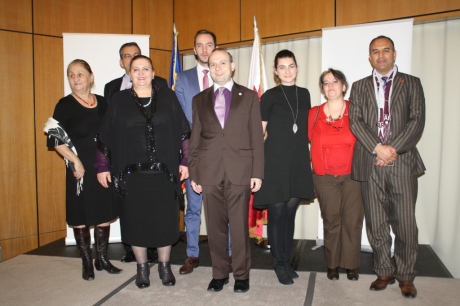
President – Professor Dr. Anton Caragea participated in the opening ceremony for World Tourism Awards for 2017.
President Dr. Anton Caragea and European Council on Tourism and Trade President Office staff had given the starting signal for what is internationally known as Nobel`s or Oscar`s of tourism: the WORLD BEST TOURIST DESTINATION and WORLD CAPITAL OF CULTURE AND TOURISM competitions.
This event has taken place on January 2, 2016 and has marked the opening of the international contests for WORLD BEST TOURISM DESTINATION AWARD and WORLD CAPITAL OF CULTURE AND TOURISM for 2017.
Held under the patronage of the European Council on Tourism and Trade, the World Best Tourist Destination – Tourism Festival is an element of novelty in the world cultural space, consisting in a series of projects meant to promote the cultural diversity of the countries that outlined candidatures to World Best Tourist Destination, under the “Open Your Culture to The World” slogan.

Arab Embassies are highlighting the Coffee, tea and sweets as national treasures and arguments for World Best Tourism Destination designation.
The inauguration ceremony, started with the message of the European Council on Tourism and Trade President, who highlighted the potential of the world culture, and the contribution of such public and cultural diplomacy initiatives to the dialogue between cultures, between generations, between the diplomatic community and civil society.
President Dr. Anton Caragea expressed satisfaction that the World Best Tourism Destination-Embassy Festival takes place concurrently with the New Year 2017 ceremonies and announced 2017 as the YEAR OF SUSTAINABLE TOURISM DEVELOPMENT AND NATURAL AREAS PROTECTION by this way marking lavishly the start of World Best Tourist Destination/World Capital of Culture and Tourism competitions.
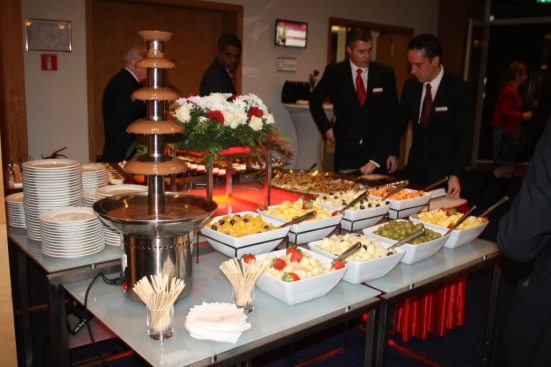
Food Festival for 2017 Tourism “Oscar`s” presented national dishes from 56 countries candidates for World Tourism Awards and succeeded to capture the imaginations of the world public.
The celebration continued with a presentation of national dishes and culinary traditions and hospitality and folk costumes, presenting the participants with a unique opportunity to taste and enjoy the world food as part of tourism development of today.
Many ambassadors present on the venue to uphold their countries candidature`s emphasize the importance of food as a bridge toward friendship and understanding.
There is only a culture of understanding and friendship around food, stated president Anton Caragea opening the food section of WORLD TOURISM AWARDS.

Asian food from China to Vietnam and India on display for European Council on Tourism and Trade festivities
World Best Tourism Destination -Tourism Festival will continue until 5 January 2017, having a diverse agenda and over 50 embassies, cultural institutes and international organizations as participants, representing 6 continent`s.
.
Further readings are available here:
April 25, 2017
Posted by centrulspri |
Africa, African affairs, AMBASSADOR ANTON CARAGEA, Anton Caragea, Blackseanews Agency, CAPITAL OF CULTURE AND TOURISM, Diplomacy, European Council on International Relations, European Council on Tourism and Trade, Foreign policy, Informations, International Relation, Mass media, News, OECD-Organization for Economic Cooperation and Development, OSCE-Organisation for Security and Cooperation in Europe, President Dr. Anton Caragea, Professor Dr. Anton Caragea, Sustainable Development Goals, Tourism, Travel, UNESCO Heritage List, Universities, WORLD BEST TOURIST DESTINATION AWARD, WORLD CAPITAL OF CULTURE AND TOURISM, WORLD CULTURAL INSTITUTE-EUROPEAN COUNCIL ON TOURISM AND TRADE, WORLD EXPO 2017, World Tourism Day, WORLD TOURISM INSTITUTION, world tourism institution-European Council on Tourism and Trade, Zimbabwe | 2017 WORLD TOURISM AWARDS COMPETITION IS UNDER SCRUTINY. WHO WILL BE THE WORLD WINNER?, A new world leader in tourism and development: H.E. Academician Dr. HUN SEN- Samdech Akka Moha Sena Padei Techo-Prime Minister of Cambodia, a perfect occasion to display to the world community the cultural values, a tour of the Wat Phnom, ACADEMICIAN ANTON CARAGEA, Academician Dr. HUN SEN held up high the WORLD BEST TOURIST DESTINATION certificate. For all the world to see !, Academician Mircea Constantinescu, Agenda for Development 2030, Angkor Thom, ANGKOR WAT, APSARA dances on the rostrum of WORLD TOURISM AWARDS (Phnom Penh-22 June 2016), Arab Embassies are highlighting the Coffee, ASPARA dances (UNESCO immaterial heritage), BAYON TEMPLE, Cambodia, Cambodia had received the official visit of European Council on Tourism and Trade high-ranking delegation, Cambodia is FAVORITE CULTURAL DESTINATION IN 2016 announces President Dr. Anton Caragea, CAMBODIA-FAVORITE CULTURAL DESTINATION, Cambodia-Favorite Cultural Destination for 2016, Cambodia-Kingdom of Wonder, CAMBODIA-WORLD BEST TOURISM DESTINATION, CAMBODIA-WORLD BEST TOURIST DESTINATION FOR 2016, consisting in a series of projects meant to promote the cultural diversity of the countries that outlined candidatures to World Best Tourist Destination, Deputy Minister of Tourism warmly welcomes European Council on Tourism and Trade delegation at Phnom Penh Airport., Diplomatic corps accredited to European Council on Tourism and Trade and foreign delegations attending the opening ceremony for 2017 WORLD TOURISM AWARDS, DISCOVER EUROPE, Discussing the future of Cambodia and world tourism: leaders of world tourism at the same table: H.E. Professor Dr. Anton Caragea and H.E. Minister Thong Khon and their teams, Dr. Thong Khon, European Council on Tourism and Trade, European Council on Tourism and Trade delegation visit to the Kingdom of Cambodia, EUROPEAN COUNCIL ON TOURISM AND TRADE IS THE MOST PRESTIGIOUS WORLD TOURISM INSTITUTION, European Council on Tourism and Trade-Code of Sustainable Tourism, European high level delegates to Siem Reap was accompanied by the diligent staff of Minister of Tourism of Cambodia and the Chairman of Siem Reap Province Mr. Nou Phalla, European Journal of Tourism and Trade, European Tourism Academy, EUROPEAN TOURISM ACADEMY DIRECTOR OFFICE, European Tourism Organization, FAVORITE CULTURAL DESTINATION, From 2 January 2017, Good news for Europe, Green Cambodia”, H.E. Pak Sokhom, H.E. Pak Sokhom - Deputy Minister of Tourism takes a photo with actors and singers on the stage of WORLD BEST TOURISM DESTINATION for 2016: Kingdom of Cambodia, H.E. President Dr. Anton Caragea on the venue of WORLD BEST TOURISM DESTINATION and FAVORITE CULTURAL DESTINATION for 2016., H.E. Tourism Minister Thong Khong on the venue of WORLD BEST TOURISM DESTINATION and FAVORITE CULTURAL DESTINATION for 2016., had started to officially register the countries and cities candidatures for WORLD BEST TOURIST DESTINATION for countries, Held under the patronage of the European Council on Tourism and Trade, In our decision to crown the diamond of Asia: Cambodia as World Best Tourist Destination, in the framework of WORLD CAPITAL OF CULTURE AND TOURISM and WORLD BEST TOURIST DESTINATION AWARD, Khmer nation potential, king, KINGDOM OF CAMBODIA IS THE HOST OF IMPRESSIVE 2016 WORLD TRAVEL AWARDS CEREMONY, LOGO OF WORLD BEST TOURIST DESTINATION AWARD, LOGO OF WORLD CAPITAL OF CULTURE AND TOURISM, magic flowers dance etc, Member of European Tourism Academy, Minister of Tourism of Cambodia together with H.E. Minister Dr. Thong Khon, Minister of Tourism of Cambodia-Thong Khon, Minister of Tourism of Kingdom of Cambodia for long-standing efforts in promoting the country tourism potential, MINISTRY OF TOURISM OF CAMBODIA, NEW MINISTER OF TOURISM, Norodom Sihanuk, OFFICE OF THE PRESIDENT OF EUROPEAN COUNCIL ON TOURISM AND TRADE, on the occasion of the celebration of country WORLD BEST TOURIST DESTINATION FOR 2016 status, On the same occasion, outstanding cultural and investment tourism projects., party leader, Phsar Tuol Tom Pong better known as Russian Market and a bird’s eye view of the awe-inspiring city monuments like: Independence Monument, placing the country among the nation’s most endowed with a perfect touristic and human potential that must be the base for a future development of Cambodia, PREAH VIHEAR, President – Professor Dr. Anton Caragea participated in the opening ceremony for World Tourism Awards for 2017, PRESIDENT DR. ANTON CARAGEA, President Dr. Anton Caragea and Minister Thong Khon are offering congratulations to the outstanding performers on WORLD TOURISM AWARDS show, President of European Council on Tourism and Trade is congratulating Dr. Thong Khon, PRESIDENT OFFICE OF EUROPEAN COUNCIL ON TOURISM AND TRADE, President Prof. Dr. Anton Caragea and his delegates receiving a replica of Jayavarman the VII-Emperor of Angkor statue from Chairman of Siem Reap Province Mr. Nou Phalla, Prime minister, Prime Minister of Cambodia: Academician HUN SEN, Prime Minister of The Kingodm of Cambodia, prince, Profesor Dr. Anton Caragea, professor Dr. Anton Caragea, Rice harvest dance, ROYAL CAMBODIAN BALET enthralled viewers attending WORLD BEST TOURISM DESTINATION AWARDS for 2016, Samdech Akka Moha Sena Padei techo and President Professor Dr. Anton Caragea-European Council on Tourism and Trade, Samdech Akka Moha Sena Padei Techo Dr. Hun Sen, Samdech Akka Moha Sena Padei Techo HUN SEN, SAMDECH HUN SEN-PRIME MINISTER OF CAMBODIA, Sustainable Development Goals, tea and Sweets as national treasures and arguments for World Best Tourism Destination designation., television and show man and has put his imprint on Cambodia`s XX century story, that put at the fore the riches and plentifulness of Cambodia srok Khmer, The ceremony started with the unveiling of the logo for WORLD BEST TOURIST DESTINATION AWARD IN 2017, The head of European Council on Tourism and Ttrade, the historical patrimony, the incredible magnificent construction of Bayon temple, the king who was in the same time: cineaste, The magnificent Temple of TA PROHM, the new governmental quarter of Peace Palace, the rich views of the red temple of Banteay Srei and the cosmic images of a vegetation invaded temple at Ta Prohm, the stupa of the latest king of Cambodia, the traditions and costumes of the Khmer people, the unveiling of the logo for WORLD CAPITAL OF CULTURE AND TOURISM IN 2017 had taken place, The visit of European Council on Tourism and Trade delegates offered, the World Best Tourist Destination – Tourism Festival is an element of novelty in the world cultural space, the world limelight the exceptional leadership and nation prowess, the world tourism institution of European Council on Tourism and Trade, the world-famous architectural treasures of Angkor Wat and Angkor Thom, to the Kingdom of Cambodia, Tourism Minister of Cambodia was specially praised by Professor Dr. Anton Caragea for his vision and astute policies and devotion to the country development, Uncategorized, under the “Open Your Culture to The World” slogan, under the glowing leadership of Prime Minister Samdech Akka Moha Sena Padei Techo- Dr. HUN SEN, United Nations World Tourism Organization (UNWTO), was the meeting of the delegates headed by H.E. President Dr. Anton Caragea with H.E. Prime Minister Samdech Akka Moha Sena Padei Techo - Dr. HUN SEN, what is internationally known as Nobel`s or Oscar`s of tourism, WORD MUSIC AWARDS, WORLD BEST TOURIST DESTINATION, World Best Tourist Destination/World Capital of Culture and Tourism, WORLD CAPITAL OF CULTURE AND TOURISM, WORLD CAPITAL OF CULTURE AND TOURISM for cities desirous to become international hubs for tourism., WORLD CULTURAL INSTITUTE-EUROPEAN COUNCIL ON TOURISM AND TRADE ELECTS CAMBODIA AS FAVOURITE CULTURAL DESTINATION, World Cultural Institution, WORLD LEADER OF TOURISM, WORLD TOURISM, WORLD TOURISM AWARDS, World Tourism Institution Director- Pavel Avramoiu, WORLD TOURISM INSTITUTIONS, WORLD TOURISM ORGANIZATION OF EUROPEAN COUNCIL ON TOURISM AND TRADE, WORLD TOURISM ORGANIZATION-EUROPEAN COUNCIL ON TOURISM AND TRADE, WORLD TRAVEL AND TOURISM AWARDS, WORLD TRAVEL AND TOURISM AWARDS • Tagged a discovery trip to the hustle and bustle of Central Market, WORLD TRAVEL MARKET, YEAR OF SUSTAINABLE TOURISM DEVELOPMENT • Tagged 2017 WORLD PERFECT DESTINATIONS TOURISM AWARDS LAUNCHED TODAY |
Leave a comment
In the end of 2015 United Nations announced the new world objectives for development and growth for all nations by 2030 under the name of Sustainable Development Goals.

The new 17-odd goals are aiming to end poverty, protect the planet, and ensure prosperity for all, as part of a new world development agenda.
In order to fulfil this objectives, Parliaments across the world are called upon to bring their support and to enact legislation encouraging nations in the fulfilment of the 17 SDG`s.
The Parliamentarian Assembly for Implementation of Sustainable Development Goals will garner support from national parliaments across the world, interested in bringing world agenda for development in their national legislations and contribute to the international and global development and fulfilling the United Nations Agenda.
The first reunion of Parliamentarian Assembly for Implementation of Sustainable Development Goals will be held in Bucharest in December 2017, and will bring together, under the message of bringing to life the vaunted SDG Platform, the leaders of Parliaments and National Assemblies across the world.

IRICE President Professor Dr. Anton Caragea had stated for UN Sustainable Development publication that: he accepted the task to coordinate in the first five years the initiative, benefiting from his long-established role and expertise in uniting and engaging national legislators and make them involved in the implementation of development issues.
After the five years preparatory phase, will be created a Governing Body of advisors that includes MPs from National Parliaments and other experts to guide and effectively implement the programmes, concluded Professor Dr. Anton Caragea.
More information’s about the Parliamentarian Assembly for Implementation of Sustainable Development Goals can be read out on UN-SDG site accessible here:
October 11, 2016
Posted by centrulspri |
AMBASSADOR ANTON CARAGEA, Anton Caragea, Blackseanews Agency, Diplomacy, Environment, Foreign policy, History, Informations, Institute of International Relations and Economic Cooperation, International Relation, Mass media, News, Open Letter, OSCE-Organisation for Security and Cooperation in Europe, Politics, President Director General of Institute of International Relations and Economic Cooperation, President Dr. Anton Caragea, Professor Dr. Anton Caragea, Religion, Romanian economy, Sustainable Development Goals, United Nations Global Compact, Universities, WORLD EXPO 2017, WORLD EXPO 2020, World Social Forum | 17 Objectives aimes to make a better world and parliamentarians accross the world, bringing world agenda for development in their national legislations, IRICE President Professor Dr. Anton Caragea had stated for UN Sustainable Development publication, Parliaments across the world are called upon to bring there support and to enact legislation encouraging nations in the fulfilment of th 17 SDG`s., The first reunion of Parliamentarian Assembly for Implementation of Sustainable Development Goals will be held in Bucharest in December 2017, the five years preparatory phase, The Institute of International Relations and Economic Cooperation of Romania is deeply involved in constructing the Parliamentarian Assembly for Implementation of Sustainable Development Goals (Parlia, The Parliamentarian Assembly for Implementation of Sustainable Development Goals will garner support from national parliaments, United Nations announced the new world objectives for development and growth for all nations by 2030, will be created a Governing Body of advisors that includes MPs from National Parliaments, World Lectures on SDG |
4 Comments
On 24 November 2015, in a special sitting, the members of Chambers of Deputies and Senate of Romania listen to a report delivered by Ambassador of Kazakhstan-Daulet Batrashev on the country ambitious programs of reforms.

H.E. Kazakhstan Ambassador-Daulet Batrashev, IRICE President-Professor Dr. Anton Caragea, Kazakhstan Embassy Counsellor-Yerzhan Bertayev and Professor Dr. Mircea Constantinescu are heading for opening special parliament sitting dedicated to the presentation of President Nursultan Nazarbayev of Kazakhstan program for FIVE REFORMS.
Kazakhstan President-Nursultan Nazarbayev launched in 2015 a set of FIVE REFORMS detailed on 100 STEPS, that will create a powerful Kazakhstan, prepared to confront the world economic crisis, able to overcome challenges of low oil prices and in the same time strong enough to create a modern and inclusive economy, a reformed administration and an abundant society.

In the preparatory séance of the Parliament sitting (from left to right): Professor Mircea Constantinescu, Mr. Florin iordache, Vice-President of Chamber of Deputies (Romanian Parliament), President IRICE Dr. Anton Caragea and H.E. Kazakhstan Ambassador Daulet Batrashev.
In the preparatory séance, the Vice President of the Chamber of Deputies Mr. Florin Iordache welcomed H.E. Ambassador Daulet Batrashev expressing the committment of the Chamber of Deputies to foster the relations with Kazakhstan, to promote bilateral economic relations and to insure the knowledge of Kazakhstan reforms as a world model.

Mr. Florin Iordache-Chamber of Deputies Vice President receives the FIVE REFORMS plan of H.E.President of Kazakhstan-Nursultan Nazarbayev.
Welcoming the Kazakhstan Ambassador, on behalf of the Senate Permanent Committee, Mr. Ioan Chelaru-Vice President of the Romanian Senate underlined the strategic relations and bond uniting Kazakhstan and Romania, a bridge of cooperation and friendship that is exemplary for the exertions of Romania and Kazakhstan diplomacy.
The Romanian Parliament will always analyse and fully appreciate the bold vision of Kazakhstan President.

Mr. Ioan Chelaru-Senate Vice President states his appreciation for Kazakhstan role on international arena and the impressive cultural contribution that Kazakhstan has brought to the world.
H.E. Ambassador Daulet Batrashev declared himself moved by the expression of friendship and solidarity remarked in all the speeches of the senators and deputies attending the event and on the speeches of the Romanian Parliament leaders.

Senate Vice President-Ioan Chelaru congratulates Kazakhstan Ambassador-Daulet Batrashev on a successful and powerful presentation of the FIVE REFORMS implemented on Kazakhstan.
I am sure that: this is an expression of the high esteem for Kazakhstan and for the ambitious vision of H.E. President Nursultan Nazarbayev.
THE FIVE REFORMS AND 100 STEPS are a perfect response to the challenges of economic crisis an instrument to develop our country economy, to modernize our administrative and judicial system and to make Kazakhstan a member of the elite club of 30 most developed nations by 2030.
During an hour-long expose all the provision of H.E. President Nursultan Nazarbayev ambitious reform plans and responded to a session of questions from Romanian MP`s.
The questions concentrated on the different economic aspects, on the preparation stages for World Expo 2017 and regarding the main investment objectives outlined by in the FIVE REFORMS visionary plan.

Kazakhstan Ambassador Daulet Batrashev outlines for the benefit of Romanian MP`s the content of the FIVE REFORMS program: a program that will put Kazakhstan on the top 30 of the world most developed countries.
The open session of the Parliament dedicated to Kazakhstan FIVE REFORMS by President Nursultan Nazarbayev was concluded with the speech of Professor dr. Anton Caragea-President General Director of Institute of International Relations and Economic Cooperation.
IRICE President remarked the fact that: Kazakhstan diplomats and personalities become regular guests on the rostrum of the parliament.
What ever the government or the parliamentary majority, the friendship with Kazakhstan remains a permanence and a priority because the Romanian people itself are feeling a deep connection with the people of Kazakhstan.

Everybody wants a photo with Kazakhstan Ambassador !
This time in the center: Senator Eugen Tapu Nazare, President of the Parliament Committee on Economy, Industry and Services.
Today we have gathered here, in the temple of Romanian high politics and democracy: The Parliament, in order to acknowledge o a document of real world significance-the FIVE REFORMS by President Nursultan Nazarbayev concluded Professor Dr. Anton Caragea.
November 25, 2015
Posted by centrulspri |
Anton Caragea, Blackseanews Agency, Daulet Batrashev, Diplomacy, Ecology, Economy, Environment, Foreign policy, Informations, Institute of International Relations and Economic Cooperation, International Relation, Kazakhstan, Leaders, Mass media, News, Nursultan Nazarbayev, President Director General of Institute of International Relations and Economic Cooperation, President Dr. Anton Caragea, President Nursultan Nazarbaev, President Nursultan Nazarbayev, Professor Dr. Anton Caragea, United Nations Global Compact, WORLD EXPO 2017 | 24 November 2015, a bridge of cooperation and friendship that is exemplary for the exertions of Romania and Kazakhstan diplomacy. The Romanian Parliament will always analyse and fully appreciate the bold vision of Kaza, a reformed administration and an abundant society, able to overcome challenges of low oil prices and in the same time strong enough to create a modern and inclusive economy, Chamber of Deputies (Romanian Parliament), Florin Iordache-Chamber of Deputies Vice President receives the FIVE REFORMS plan of H.E.President of Kazakhstan-Nursultan Nazarbayev, H.E. Kazakhstan Ambassador-Daulet Batrashev, in a special sitting, in order to acknowledge o a document of real world significance-the FIVE REFORMS by President Nursultan Nazarbayev concluded Professor Dr. Anton Caragea. LANDMARKS IN ROMANIA-KAZAKHSTAN PARLIAMENTARY , in the temple of Romanian high politics and democracy: The Parliament, Industry and Services, Industry and Services. Today we have gather here, Ioan Chelaru-Senate Vice President states his appreciation for Kazakhstan role on international arena, Ioan Chelaru-Vice President of the Romanian Senate underlined the strategic relations and bond uniting Kazakhstan and Romania, IRICE President-Professor Dr. Anton Caragea, Kazakhstan Embassy Counsellor-Yerzhan Bertayev and Professor Dr. Mircea Constantinescu are heading for opening special parliament sitting dedicated to the presentation of President Nursultan Nazarbaye, Kazakhstan President-Nursultan Nazarbayev launched in 2015 a set of FIVE REFORMS detailed on 100 STEPS, preparatory séance of the Parliament sitting (from left to right): Professor Mircea Constantinescu, prepared to confront the world economic crisis, President IRICE Dr. Anton Caragea and H.E. Kazakhstan Ambassador Daulet Batrashev, President of the Parliament Committee on Economy, Senator Eugen Tapu Nazare, that will create a powerful Kazakhstan, THE FIVE REFORMS AND 100 STEPS are a perfect response to the challenges of economic crisis an instrument to develop our country economy, THE FIVE REFORMS PROGRAM OF KAZAKHSTAN PRESENTED TO ROMANIAN PARLIAMENT, the members of Chambers of Deputies and Senate of Romania listen to a report delivered by Ambassador of Kazakhstan-Daulet Batrashev, to modernize our administrative and judicial system and to make Kazakhstan a member of the elite club of 30 most developed nations by 2030, Vice President of the Chamber of Deputies Mr. Florin Iordache welcomed H.E. Ambassador Daulet Batrashev expressing the committment of the Chamber of Deputies to foster the relations with Kazakhstan |
1 Comment
The 100 concrete steps set out by President Nursultan Nazarbayev to implement the five institutional reforms
(20 May 2015)

Five institutional reforms:
-
Creation of a modem and professional civil service
-
Ensuring the rule of law
-
Industrialization and economic growth
-
A unified nation for the future
-
Transparency and accountability of the state
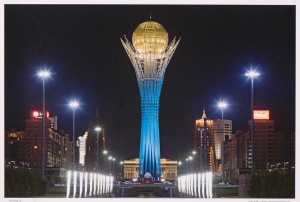
Today Kazakhstan is offering development and a decent life to all his citizens and the future will be even better.
-
DEVELOPMENT OF PROFESSIONAL CIVIL SERVICE
-
Reforming recruitment to the civil service. Recruitment to the civil service must start from junior positions
-
Recruitment and promotion must be based on a competency-based approach and merit.
-
Creation of a centralized selection process for new entrants to prevent corruption and strengthen the role of the civil service agency. Implementation of a three staged selection process.
-
Introduction of a mandatory probation period for new entrants to the civil service for the first time. A 3+3 system will be implemented, with (evaluations and reviews taking place after three and six months).
-
Salary increases for civil servants performing outstanding work.
-
Transition to salary increases based on performance and results. Performance will be evaluated on the basis of: achievement of annual objectives for civil servants; achievement of strategic plans for state agencies; indicators of good quality of public services for ministers and Akims (governors), including standard of living and attracting investments; positive macroeconomic indicators for government officials.
-
Civil service salaries will in the future be adjusted to take into account location.
-
Mandatory provision of state housing for civil servants on duty. Houses will continue to belong to the state without any right of private ownership.
-
Introduction of legislation to provide training for civil servants and professional development courses at least once every three years.
-
Moving to a competitive based system for promotion within the civil service. Strengthening the principle of meritocracy by promoting only through competition among junior civil servants.
-
Recruitment of foreign managers, experts from the private sector and staff from international organizations when needed for specialist roles. This will make the civil service open and competitive.
-
Implementation of new standards through the development of a civil service code of ethics overseen by a special commissioner.
-
Strengthening the fight against corruption, including development of new legislation. Establishment of a special unit in the Agency for Civil Service Affairs and Fighting Corruption dealing with systemic prevention and measures against corruption.
-
Adoption of a new law on civil service, applicable to employees of all state agencies, including law enforcement.
-
Comprehensive performance reviews of all existing civil servants following the adoption of a new law on civil service, the strengthening of qualification requirements and introduction of a new system for pay.
-
ENSURING THE RULE OF LAW
-
Improvement of the justice system to ensure citizens have access to justice. Transition from existing five-level justice system (first instance, appellate, cassation, supervisory and second supervisory) to a streamlined three-level system (first, appellate, cassation).
-
Stricter qualification requirements and candidate selection process for judicial posts. They will be required to have five years’ experience in the justice system with the introduction of case study tests to assess skills and suitability. Candidates for judicial posts will work as interns in courts for a year with scholarships provided. After the completion of this internship program, judges will have a one-year probation period.
-
Separation of the Institute of Justice from the Academy of Public Administration in order to strengthen links between learning and judicial practice. This Institute will function under the Supreme Court and will ensure the professional development of judges.
-
Strengthening accountability of judges. Development of a new code of ethics for judges, which can be used by citizens to appeal a specially established judicial board under the Supreme Court against judges’ actions that they consider improper.
-
Mandatory implementation of audio and video recording of all judicial processes and hearings. A judge must not stop the recording or edit audio and video materials.
-
More use of jury service in trials. An implementation of a legal definition of categories of criminal cases, where a jury trial must be mandatory.
-
Ensuring an improved balance between prosecution and defense in courts by gradually transferring to the judge the authority to authorize investigations, which limit constitutional rights of citizens.
-
Establishing separate judicial proceedings to consider disputes related to investment. A special investment board will be set up in the Supreme Court to examine major cases.
-
Establishing an AIFCinternational arbitration Centre in Astana, modelled on the experience in Dubai.
-
Establishing an international council, with leading foreign judges and lawyers, under the Supreme Court to implement best international standards. The council will advise the Supreme Court on improving Kazakhstan’s judiciary.
-
Reducing the role of the prosecutor in civil trials to speed up the judicial process. This will require necessary amendments to the code of civil procedure.
-
Further developing bailiff services in the private sector with the gradual reduction in the number of state bailiff services.
-
Improvement of the appointment process of police officers to ensure it is based on competency. Introduction of new tests for new candidates and existing police officers to assess personal qualities and professional skills.
-
Appointing staff of law enforcement agencies to the state service system. Introducing common rules of service, those to take into account features of each law enforcement agency.
-
Establishing a local police service accountable to local executive agencies and the local community. Responsibilities of local police will include ensuring public order, traffic control, preventing domestic violence and preventing minor offences.
Traffic wardens will be provided with video recorders, which will register everything that a police officer does during the shift.
-
Ensuring police transparency by establishing public councils, which examine citizens’ appeals against actions by police officers who violate ethical standards. The status and mandate of public councils will be enshrined in the legislation.
-
Creating an internet portal based on the national information centre “map of criminal offences”. This map will display all offences committed in the country no later than a week after the crime took place to help increase public accountability and police effectiveness.
-
Establishing an effective system of rehabilitation for citizens released from prisons and registered by the probation service. Development of a comprehensive strategy for social rehabilitation and a standard for special social services.
-
Modernization of prison infrastructure through public-private partnerships. International experience will be studied to see how the private sector can be engaged to invest in building, maintaining and managing prisons.
-
INDUSTRIALIZATION AND ECONOMIC GROWTH
-
Privatising agricultural land in order to improve its efficient use. Introducing amendments to the land code and other legal acts.
-
Improving the procedure of changing the purpose of land use. Regular monitoring of agricultural land use and the transfer of all unused lands to the state to allow further privatization.
-
Improvement of tax and customs policies and procedures. Reduction of number of customs rates of the Single Customs Tariff through the ‘0-5-12’ model within homogeneous products groups of 6 items of the FEACN.
-
Implementing the “single window” principle for exporters and importers during customs procedures. Development of the electronic declaration system to enable the automated clearance of goods and reduction in the number of documents needed for export and import and their processing time.
-
Integrating customs and tax systems. To ensure proper taxation, importers will be tracked from the moment goods enter Kazakhstan until their sale.
-
Introducing “Post Factum” mode of the custom clearance. Providing participants an opportunity to produce goods prior to the submission of declaration for goods.
-
Simplification of legalization procedure for property and money. Introducing amendments and additions to the existing legislation.
-
Introduction from January 1, 2017, of the universal tax declaration of incomes and expenditures for civil servants with expansion over time to all citizens.
-
Establishment of centres for processing tax declarations. These will have access to the archive of electronic documents of tax payers. The introduction of the risk management system will see citizens rated against tax control risks. After the first application, the individual will not be reviewed again for three years.
-
Improvement of indirect taxation mechanisms. This will include detailed consideration of introducing sales tax instead of value added tax.
-
Improvement of current tax regimes with mandatory introduction of tax registration for incomes and expenditures.
-
Improvement of processing permits. Introduction of the three-stage process of receiving construction permit (“30-20-10”). The first level is the issuance of an architectural and planning assignment, which will take up to 30 days. The second stage is agreement of the project design (layout), which will take up to 20 days. The third stage is the permit itself, which will take up to 10 days.
-
Stage-by stage removal of the state monopoly of assessing pre-design and design documentation. This role will be transferred to the private sector.
-
Introducing an effective method of estimating costs of construction. A new pricing method in construction will improve the estimation of construction costs at current prices with actual market value of materials, products, equipment, and salary, and will ensure prompt updating of costing standards.
-
Replacing old and obsolete construction standards and rules used since the Soviet period with the eurocodes system. Adoption of new regulations will allow the use of innovative technologies and materials, increase the competitiveness of Kazakhstan’s experts on the construction services market, and will provide an opportunity for Kazakh companies to access foreign construction services markets.
-
Reorganization of electric power industry. Introduction of a single purchasing agent. This will help decrease the difference in tariffs between the regions.
-
Expanding regional electricity network companies. This will help to increase reliability of energy supplies, reduce costs of supplying electricity to other regions and prices for consumers.
-
Implementation of new electricity tariffs to attract investments to the industry. The new tariff will cover both the financing of capital expenditure and generating costs for the power used.
-
Reforming the work of the antimonopoly committee and aligning it with the OECD standards. The committee must be focused on the promotion of competition between businesses.
-
Strengthening the institute of the business ombudsman to protect the interests of entrepreneurs. The institute will include business representatives and the national chamber of entrepreneurs.
-
Attracting at least ten international companies to the processing sector to produce export goods and ensure Kazakhstan’s access to global markets. Promoting new opportunities to international businesses at international economic forums.
-
Establishment of joint ventures in the priority sectors of the economy with “anchor investors” – international strategic partners (as currently practiced by Air Astana and Tengizchevroil). In the future, the state’s share in these joint ventures will be floated as the IPO. Establishment of a favorable migration regime, based on the experience of the US, Canada and Australia, to attract high-quality international experts.
-
Attracting strategic (anchor) investors, who have successful experience in creating tourist clusters.
-
Attracting strategic (anchor) investors to establish a single operator maintaining and developing road infrastructure.
-
Attracting strategic investors to the energy saving industry. Their main task will be to encourage the development of companies in the private sector to provide energy saving services with the return of their expenditures and financial profit arriving from the reduction of energy costs.
-
Attracting strategic investors to develop dairy production. The main task will be to export up to half of the produced goods to the CIS countries within three years. The work will be based on the experiences of New Zealand’s Fronterra and Denmark’s Arla, with the development of cooperative production taking place in rural areas.
-
Attracting strategic investors to develop production and processing of meat. The main task is the development of raw materials for production and export of processed products.
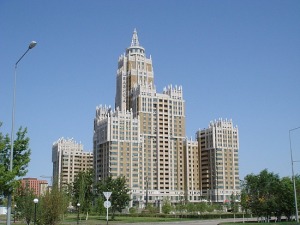
-
Implementation of the “national champions” initiative with the focus on supporting leaders of medium-sized businesses in non-resource based sectors of the economy. This will provide an opportunity to create competency centres where aspiring businesspeople can learn the necessary skills.
-
Development of two innovative clusters to accelerate the creation of a knowledge-based economy. Scientific centers and laboratories will be established at the Astana business campus of the Nazarbayev University to conduct joint scientific and research projects, their development, testing and commercialization. They will be encouraged to cooperate with local and foreign high-tech companies.
-
Development of the law “On commercialization of the results of science and (or) science and technical activities”, which defines the process of financing innovation in industry. The focus of scholarly grant and program structure will be reformed to reflect the needs of the State Program of Accelerated Industrial and Innovative Development.
-
Further integration of Kazakhstan into the international transport and communication routes. Launch of the project to establish a multi-modal “Eurasian transcontinental transport corridor”, which will allow free transit of freights from Asia to Europe. The transport corridor will include routes through Kazakhstan, Russia and further into Europe; through Kazakhstan from Khorgos to the Aktau port and through the Caspian Sea to Azerbaijan, and Georgia. We will aim to work with the Asian Infrastructure Investment Bank.
-
Establishment of an international aviation hub. With the participation of a strategic investor, a new international airport of the highest international standards will be built near Almaty.
-
Establishing “Air Astana” and “KTZ” as major international operators. “Air Astana” will focus on international routes and open new routes to major financial centers of the world (New York, Tokyo, Singapore). Development of “Air Astana” will be carried out in accordance with plans by “KTZ” to develop alternative routes, which will help reduce the cost of freight shipments by more than half.
-
Improve the effectiveness of the state air transport management to increase attractiveness of air transit through Kazakhstan. Activities of the Civil Aviation Committee will be focused on the model of the UK civil aviation authority and the European aviation safety agency.
-
Making Astana a Eurasian business, cultural and scientific centre, attracting researchers, students, entrepreneurs, tourists from the region. A modern international transport and logistics system, including a new terminal at the airport will be established in the city.
 Tourism in Kazakhstan-a way further for the country!
Tourism in Kazakhstan-a way further for the country!
-
Establishing the Astana International Financial Centre (AIFC), and giving it a special status consolidating legally within the constitution. Establishment of the center as a financial hub for the CIS countries, as well as the region. An independent commercial law system, which will function on English law principles and with a judicial corps consisting of foreign experts will be established. The goal is for Kazakhstan’s financial hub to join the top 20 financial centers of the world.
-
Develop a strategy to ensure that the financial center provides specialized services to the capital markets as well as Islamic finance services. Development of new types of financial services, including private banking and asset management. Introducing a liberal tax regime for the center. Possibility of establishing an offshore financial market. Introducing the principle of investment residence like in Dubai.
-
Making English the official language of the financial center. Its independent legislation must be developed and applied in English language.
-
Ensuring international transport accessibility to the financial center. Establishment of a network of regular and convenient air services between the financial center and other leading financial hubs.
-
Increasing transparency and predictability of the subsoil use sector by introducing the CRIRSCO mineral reserves international reporting standards.
-
Introducing a facilitated contracting method for all mineral resources by using the best international practices.
-
Increasing the quality of human capital on the basis of the OECD countries’ standards. Stage-by-stage implementation of 12 years of secondary education, improving the standards of school education in order to develop higher literacy standards. Introducing per capita financing for high schools and establishing a system of expanding successful schools.
-
Training highly qualified staff in the top 10 leading colleges and 10 higher education institutions that focus on six key sectors of the economy. Sharing their experience with other educational institutions in the country.
-
Moving gradually towards the self-management of universities, taking into account the experience of the Nazarbayev University. Transformation of private universities into non-profit organizations in line with international practice.
-
Stage-by stage transition to the use of the English language in the education system. The main aim is to increase competitiveness of students when they leave and position the educational sector as attractive for international students.
-
Implementation of mandatory social health insurance. Strengthening financial sustainability of the health system through the principle of mutual responsibility of the state, employers and citizens. Priority financing of the primary health care. Primary care will be the core of the national healthcare for prevention and early fight against diseases.
-
Development of private health care, corporate management for health facilities. Introduction of a corporate governance at healthcare organizations in order to enhance accessibility and quality of the healthcare services through competition among the organizations for financing within the healthcare insurance. Encouragement of privatization of the public healthcare organizations and extension of the guaranteed healthcare package provided at private healthcare organizations.
-
Establishment of a commission on health care service quality under the Ministry of Healthcare and Social Development. The main aim is to introduce best standards of health care service (treatment protocols, personnel training, medicines provision, qualityand access control).
-
Liberalization of labour relations and development of a new labour code.
-
Modernisation of the social benefits system, social assistance will be provided only to citizens who are genuinely in need of it. State targeted social assistance to citizens with working capacity and low income will require them to actively participate in programs that enable them to find employment.

Kazakhstan President is having an ambitious plan: making his country a role model for the world
-
IDENTITY AND UNITY
-
Development of the draft patriotic act “Mangilik El” (Eternal Nation)
-
Development and implementation of the large-scale project of the Assembly of People of Kazakhstan “Big Country –Big Family”, which will strengthen Kazakhstan’s identity and create conditions to form one civil society. All the work will be connected with the implementation of the concept of development of the tourist industry by 2020 and establishment of regional tourist clusters: “Astana – the Heart of Eurasia”, “Almaty – Kazakhstan’s Free Cultural Zone”, “Unity of Nature and Nomadic Culture”, “The Pearl of Altai”, “Restoration of the Great Silk Road”, “the Caspian Gates”.
-
Development and implementation of the national project “MeninElim” (My Country) that aims to strengthen civil identity. The implementation of a number of technological projects is envisaged. They include the creation of the large-scale internet project “Encyclopedia of Kazakhstan”, which will enable citizens and foreign tourists to discover more about the country. The portal will include 3D video tours of Kazakhstan, information on history and culture of the country, as well as interesting events. The portal will act as Kazakhstan’s “business card”, as well as a national guide, a national wall of fame of citizens and a platform for online discussion.
-
Development and implementation of the national project on promoting the idea of the Society of Common Labor, which includes plans to implement the infrastructure development program “NurlyZhol” (Path to the Future), the second five-year period of industrialization and personal success stories of Kazakh citizens (heroes of our time), who achieved success since independence.
-
Development and implementation of the national project “NurlyBolashak” (Bright Future). Introducing values of the Mangilik El (Eternal Nation) into the current education programs.
-
Information support and promotion of the implementation of five institutional reforms as well as Kazakhstan’s identity in mass media, the internet, new-generation media, and social networks.
-
ESTABLISHING AN ACCOUNTABLE STATE
-
Creating a results-oriented state governance system with standardized and minimal procedures for monitoring, assessment and control. A disciplinary oversight system should be based only on achieving stated target. All procedural tasks and interim oversight should be abolished. State agencies will have independence in their activities aimed at achieving the set targets.
-
Establishing a reduced state planning system, decreasing the number of state programs, abolishing sector programs by integrating them into existing state programs, as well as into strategic plans of state agencies. Redesigning strategic plans and regional development programs.
-
Introduction of a new system for auditing and assessing public service work. Assessment of state programs will be carried out once every three years. Assessment of state agencies’ efficiency will be conducted annually. The law “On state audit and financial control” will be adopted. The accounts committee will work based on the model of world leading audit companies and move away from current operational control.
-
Introduction of “the open government”. Drafting law on access to information that will allow access to any information of state agencies except for highly confidential state documents and other information protected by the law.
-
Introduction of annual public statements by heads of state agencies on achieving key objectives and publication of their reports on official websites.
Introduction of annual reports on the performance of heads of national higher education institutions.
-
Ensuring online access to statistical data of central state agencies. All budget, spending and consolidated financial reports, as well as results of external assessment of state service quality will be published.
-
Empowering citizens to participate in the decision-making process through development of local governance. Giving more powers to the private sector and self-regulated organizations, especially when it comes to activities that are not typically performed by the state.
-
Independent budgets for local government will be introduced in rural areas, auyls, villages, and towns. Mechanisms will be put in place to allow citizens to participate in discussing the best way to spend the budget.
-
Strengthening the role of public councils under state agencies and Akims. They will discuss the implementation of strategic plans and regional development programs, as well as budgets, reports, achieving stated objectives, draft legal acts concerning rights and freedoms of citizens and draft program documents. Legally establishing these public councils will enhance transparency of state decisionmaking.
-
Establishment of a state institution “government for citizens” that will become a single provider of state services and will be based on the example of Canada service and centre link in Australia. This institution will integrate all public service centers into a single system. International certification of state services according to ISO 9000 quality management standards.

A happy future for all the people of Kazakhstan!
IMPLEMENTATION MECHANISMS
-
The National Modernization Commission under the President is established. It has five working groups, which include national and foreign experts.
-
Thenational commission should implement five institutional reforms on a step-by-step basis. It will ensure effective discussions between state agencies, the business sector and the civil society.
-
The national commission should adopt conceptual decisions and define concrete action plans. Its proposals will be approved by the President of Kazakhstan. Once approved, the Parliament will transform these proposals into legislation.
-
Efficiency of implementing key initiatives by Ministers and Akims will be thoroughly monitored by the national commission.
-
It is necessary to establish an international consultative council with experienced foreign experts, under the national commission. This council will develop recommendations and carry out independent monitoring of reforms and their implementation.
-
The Office of the Prime Minister of Kazakhstan will act as the working body of the national commission.
July 30, 2015
Posted by centrulspri |
Blackseanews Agency, Diplomacy, Ecology, Economy, European Council on International Relations, History, Informations, International Relation, Kazakhstan, Kazakhstan Presidential Election 2015., Leaders, Mass media, News, Nursultan Nazarbayev, OECD-Organization for Economic Cooperation and Development, OSCE-Organisation for Security and Cooperation in Europe, Politics, President Nursultan Nazarbaev, Russia, Tourism, Universities, WORLD EXPO 2017 | 100 concrete steps set out by President Nursultan Nazarbayev to implement the five institutional reforms, A unified nation for the future, an international consultative council with experienced foreign experts, appellate, Assembly of People of Kazakhstan “Big Country –Big Family”, Astana International Financial Centre (AIFC), “Almaty - Kazakhstan’s Free Cultural Zone”, “Astana - the Heart of Eurasia”, “Eurasian transcontinental transport corridor”, “Restoration of the Great Silk Road”, “the Caspian Gates”, “The Pearl of Altai”, “Unity of Nature and Nomadic Culture”, cassation, Civil Aviation Committee, Creation of a modem and professional civil service, Denmark’s Arla, Development of the draft patriotic act “Mangilik El” (Eternal Nation), Ensuring the rule of law, Establishing “Air Astana” and “KTZ” as major international operators, European aviation safety agency, experiences of New Zealand’s Fronterra, Industrialization and economic growth, Institute of Justice, irst instance, law “On commercialization of the results of science and (or) science and technical activities”, Mandatory implementation of audio and video recording of all judicial processes, National Modernization Commission under the President is established, Office of the Prime Minister of Kazakhstan, Privatising agricultural land, State Program of Accelerated Industrial and Innovative Development, supervisory and second supervisory, Transparency and accountability of the state, ttracting strategic (anchor) investors, who have successful experience in creating tourist clusters |
Leave a comment
Increased regional cooperation, visa facilitation and the better promotion of European tourism are some of the topics in focus at the 8th Meeting of the European Tourism organization-ECTT to be held in Bucharest, Romania, 25-26 June 2015.
Europe is the world’s most visited region and is the main source of outbound tourism to other destination, accounting for more than half of the world’s international travelers.

Palace of Parliament is preparing to host european tourism who`s who.
In 2014, international tourism in Europe had registered a major contribution to the economic recovery in the region: international tourist arrivals grew by 3% to reach a record 584 million, while international tourism receipts increased by 4% contributing US$ 509 billion (383 billion euro) to the European economies.
The 8th Meeting of the European Tourism organization will be held at the Romanian parliament and Professor Dr. Anton Caragea-President Director general of IRICE and President-elect of European Tourism will play host to representatives from 30 European countries and other tourism stakeholders in the region to discuss policy priorities and set the agenda for ECTT in the world in 2015-2016.
 Professor Dr. Anton Caragea is signing the european tourism meeting call
Professor Dr. Anton Caragea is signing the european tourism meeting call
The main priorities for European tourism identified by the European national tourism organizations include the development of cultural destinations and carving transnational products, in order to enhance regional cooperation, declared President-Professor Dr. Anton Caragea.
May 27, 2015
Posted by centrulspri |
Diplomacy, DISCOVER ROMANIA, Ecology, Economy, Environment, Foreign policy, Informations, International Relation, Mass media, Medical Tourism, News, Oriental Art, Tourism, United Nations Global Compact, WORLD BEST TOURIST DESTINATION AWARD, WORLD EXPO 2017, WORLD EXPO 2020 | 8th Meeting of the European Tourism organization, Europe is the world’s most visited region, EUROPEAN TOURISM ORGANIZATION GENERAL MEETING WILL BE HELD IN BUCHAREST, in order to enhance regional cooperation, Increased regional cooperation, international tourism in Europe had registered a major contribution to the economic recovery in the region: international tourist arrivals grew by 3% to reach a record 584 million, main priorities for European tourism identified by the European national tourism organizations include the development of cultural destinations and carving transnational products, Palace of Parliament is preparing to host european tourism who`s who, visa facilitation, while international tourism receipts increased by 4% contributing US$ 509 billion (383 billion euro) to the European economies |
1 Comment
President Nazarbayev outlined his generous vision for the people of Kazakhstan, he outlined what can be a template for world leaders and nations in extracting their nations from the suffering of economic hardship and direct them towards sustainable growth.
(Professor Dr. Anton Caragea MA,FINS,EDA)
It is our honor to present to the world, the full text of the message of H.E.President Nursultan Nazarbayev of Kazakhstan presented on 10 November 2014 from Ak Orda-Presidential Palace.
The Address of President Nursultan Nazarbayev
to the people of Kazakhstan
Astana, November 11, 2014
Nyrly Zhol – The Path to the Future

H.E.President Nursultan Nazarbayev-leader and builder of modern nation of Kazakhstan
Dear people of Kazakhstan,
The world is facing new challenges and threats today. The world economy has still not recovered from consequences of the global financial and economic crisis. The recovery continues at a very slow and uncertain pace, and some countries remain in decline. The geopolitical crisis and the sanctions policy of the leading powers create an additional obstacle for the recovery of the world economy.
From my experience, I feel that the years to come will become the time of global trials. The entire architecture of the world will be changing. Not all countries will be able to get through these complications in a decent manner. Only strong states, with their people united, will manage to do that. Kazakhstan, as a part of the world economy and a country located very close to the epicentre of geopolitical tensions, is experiencing negative pressure from all these challenges. We see the results: prices in global markets are dropping, and general economic growth is slowing down.
As is known, the forecasts of the development of the global economy for 2014 and the next two years were revised downward by the International Monetary Fund and the World Bank. That means we need to revise our own plans, and make adjustments for the coming period. There is no time for hesitation. The measures I will talk about today will be implemented from January 1, 2015. We must promptly take all the possible measures to prevent negative trends.
Today the Government is already working quickly at my order. We have revised the parameters of the republic’s budget for 2015. And this is right, as the drop in prices of our export raw materials has led to the reduction of the flow of money to our income. At the same time, the Government have a tough yet specific task: it must fulfil all social liabilities in full.
In a crisis, as we’re seeing the world over, economic policies must be re-evaluated. The sectors that need support are those which create the highest multiplier effect on economic growth and employment. We have already had such an experience. Suffice it to recall our successful anti-crisis measures in 2007-2009. As you see, life makes adjustments to the best laid plans. And we should add new content to the platform of our party based on today’s reality.
On my orders, the Government has completed the development of a new large-scale development programme. Today, as we respond to the challenges we face, I proclaim Kazakhstan’s New Economic Policy “Nyrly Zhol” (The Bright Road). This is what I devote my state-of-the-nation address for 2015. The policy will have a counter-cyclical character and will be aimed at continuing structural reforms in our economy. What does this mean?
Over the years, when the situation in external markets was favourable, and the price of oil and our export products were at sufficiently high level, we diverted revenues from those exports to the National Fund. One of the main tasks of the National Fund is to increase resistance of our economy to external shocks, including when prices of natural resources drop.
We were putting income from extraction and sales of raw materials into this Fund during all these years. We used 10 billion US dollars out of the National Fund to fight the crisis of 2007-2009. As for the rest of the money, we have not spent it. We saved and multiplied it. Now we are in the period when we must use these reserves. They will help overcome uneasy times and stimulate the growth of our economy. These resources are not intended for short-term measures. We will spend them on the transformation of our economy, namely – the development of transport, energy, industrial and social infrastructure, and small and medium businesses.
In February, a decision was made to allocate one trillion tenge from the National Fund to support economic growth and employment in 2014-2015 in two tranches of 500 billion tenge. To finalise the initiated projects and resolve pressing issues, I have instructed the Government to divert the second tranche of 500 billion tenge from the National Fund to the following goals:
First, 100 billion tenge should be additionally allocated to issue easy-term loans to small and medium businesses, as well as large enterprises. This will secure the implementation of projects in the food and chemical industries, engineering, as well as the service sector.
Second, to revive the banking sector and buy out “bad” loans, I have ordered additional capitalisation of the Fund of Problem Loans in the amount of 250 billion tenge in 2015.
Third, to raise new investments, we need to improve respective conditions. For these purposes, I have ordered the government to allocate 81 billion tenge in 2015 to complete the construction of the “dry port” complex, the infrastructure of the special economic zones at Khorgos – East Gate and the National Industrial Petrochemical Technological Park in Atyrau and Taraz.
Fourth, to continue the construction of the EXPO-2017, I have ordered the allocation of 40 billion tenge in 2015 adding to the already allocated 25 billion tenge.
Fifth, on the eve of EXPO-2017, we need to take care of the development of Astana’s transport infrastructure. This year the capital airport will reach its maximum capacity – 3.5 million people. Therefore, to increase its potential, I have ordered the allocation in 2015 of 29 billion tenge on the construction of a new terminal and a reconstruction of the landing strip. This will allow us to increase airport capacity to 7.1 million of passengers per year by 2017.
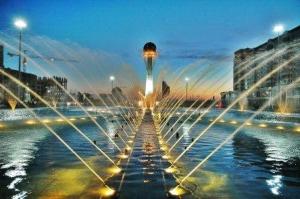
ASTANA-capital and host city of WORLD EXPO 2017
Dear people of Kazakhstan,
In view of new external risks for the development of our economy, we need new initiatives to stimulate business activity and employment. The Infrastructure Development Plan, which I want to make public today, will become the core of the New Economic Policy. It is intended to last for five years and is to run in parallel with the Second Five Year term of the Programme of Accelerated Industrial and Innovative Development. More than 100 foreign companies intend to participate in its implementation. The total investment portfolio will make 6 trillion tenge, with the state contributing 15 per cent of the total.
***
Kazakhstan owns a territory so vast it would tire the wings of a bird to fly over it. Thus, this plan requires huge funds and hard work. There is a saying: “If you want to know a nation’s prosperity look at its paths.” Road connections are of high importance, not only for travel, but also for the transportation of goods. In ancient times our big cities were located along the Great Silk Road.
Nowadays, all essential life depends on access to the main highways. Roads are the essence of life, the source of a modern existence. All the regions of Kazakhstan need to be closely connected by railroads, highways, and air services. The nine roads, connecting with each other in Astana are like the roots of life, spread our capital’s creative spirit. Improving interconnectivity between the regions will eventually lead to a greater domestic well-being. It will strengthen trade and economic ties between the regions. There will be new markets emerging from inside the country. Therefore bringing together distant parts is the main focus of today’s address.
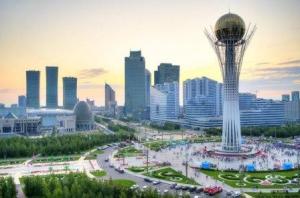
ASTANA: a perfect and lofty city in the heart of Kazakhstan
***
First, the development of transport and logistics infrastructure will be formed around regional hubs, connected through Astana as the central hub and backbone by highways, railways and airlines. But first, we need to implement the main road projects. They are Western China to Western Europe; Astana to Almaty; Astana to Ust-Kamenogorsk; Astana to Aktobe to Atyrau; Almay to Ust-Kamenogorsk; Karaganda to Zhezkazgan to Kyzylorda; Atyrau to Astrakhan.
It is also necessary to continue the creation of a logistical hub in the east and marine infrastructure in the west of the country. The large-scale ferry site from Kuryk and the railway line from Borzhakty to Yersai will contribute to the growth of exports to the west through ports in the Caspian Sea. I have ordered the Government to work on the construction or rental of terminals at dry and sea ports in China, Iran, Russia and the EU.
Second, development of industrial infrastructure. The implementation of infrastructure projects will produce big demand for construction materials, products and services for transport, communication, energy, housing and utility areas.
So, firstly, we need to complete our work on the formation of infrastructure in existing special economic zones. The Government and the akims (governors) need to work in a timely manner to fill those zones with concrete projects. Secondly, they need to explore the possibility of constructing new industrial zones in regions aimed at the development of production facilities of SMEs and raising extra investments. Tourism infrastructure is a separate line. Its main advantage is the opportunity to create jobs. The creation of one job here costs 10 times less than in industry.
Third, the development of energy infrastructure. Extensive work has been carried out within the framework of the industrialisation programme in energy in the past five years. Nevertheless, limited transmission systems create a deficit of electric energy in the southern regions of the country and of natural gas in central and eastern regions. We need to focus on two projects. To construct high voltage lines Ekibastuz – Semey – Ust-Kamenogorsk and Semey – Aktogai – Taldykorgan – Almaty. This will create a balanced energy supply from Kazakh power plants to all regions of the country.
Fourth, the modernisation of housing and utilities infrastructure and water and heat supply networks. The total demand for investments makes no less than 2 trillion tenge with annual allocation till 2020 from all sources of founding of no less than 200 billion tenge.
Today we see significant interest in investing in the modernisation of housing and utilities from the European Bank for Reconstruction and Development, the Asian Development Bank, the Islamic Development Bank and private investors. We need to ensure their maximum involvement through the provision of long-term investment rates. Such projects should be co-funded by the state to prevent significant increases in rates. We should allocate up to 100 billion tenge each year to accelerate the level of modernisation in our heat and water supply systems, in addition to the funds already envisaged in the budget.
Fifth, the strengthening of housing infrastructure. The formation of urban centres is accompanied by a significant cross-flow of the population. This creates pressure on the labour market and city infrastructure, including on the housing fund. Therefore, our approach to construction of rental housing should be revised. The state will construct social housing to rent out and provide to the population for long term rent with the right to buy it. The provision of housing directly, without mediators, with low-interest loans will allow us to reduce the cost of acquisition. No first instalment and low mortgage interest will make housing more affordable for various strata of the people of Kazakhstan. Therefore, we will additionally increase funding of construction of rental housing for the amount of 180 billion tenge during 2015-2016.
Sixth, development of social infrastructure. We must resolve the issues of unfit schools and three-shift education, as we set out in our election platform. The funds envisaged in the 3 year budget do not let us to resolve this problem by 2017. Therefore, I have ordered the Government to allocate another 70 billion tenge. Another matter is the lack of kindergartens. I instruct to allocate an additional 20 billion tenge to reduce the deficit of places in preschools within 3 years. Akims must deal will this as much as possible and attract the private sector.
Ten higher education institutions were defined within the framework of the industrialisation programme based on which the link between science, economic sectors and personnel training will be ensured. I have ordered the Government to create the material and technical framework of these education institutions, allocating up to 10 billion tenge by 2017.
Seventh, we need to continue the work to support small and medium businesses and business activities. As of today, the 100 billion tenge from the National Fund aimed at supporting and crediting small and medium enterprises has been fully used. This allowed us to create more than 4,500 jobs. The demand for these funds exceeded the supply by 23 billion tenge. The unprecedented conditions providing credit for businesses at 6 per cent for 10 years were created. There were no such conditions in our country before. We should continue our work to develop small and medium businesses as a driver of economic growth and increase their share to 50 per cent of GDP by 2050. Therefore, we need to use credit facilities for small and medium businesses more effectively at the account of the ADB, EBRD, and the World Bank for the total amount of 155 billion tenge in 2015-2017.

Kazakhstan of today: a wonderful mixture of tradition, culture and modernity.
Dear people of Kazakhstan,
The situation in the world economy makes it sufficiently hard to achieve our goals without extra financial resources.
***
There was a reason why we established the National Fund. It was mainly aimed at providing stable social and economic development, and protecting our country’s economy from unpredictable circumstances. Right now, it is high time to use this fund for our needs. Kazakhstan should avoid repeating the mistakes of other countries. We have to use our internal resources for economic growth efficiently.
***
I have made the decision regarding additional allocation of 3 billion US dollars from the National Fund for the period from 2015 to 2017. I have ordered the Government to prepare respective decisions for the allocation of funds from the National Fund and to take into account the required funds in the draft national budget for 2015 within a week. The Government should also undertake measures and ensure effective and rational use of these funds.
The commission created by me will strictly monitor the effective use of the funds and report to me personally. I will request a report about every tenge spent. Special responsibility is imposed on all the akims. Nur Otan must actively get involved into this work and to establish strict party control at all levels.
I am entrusting the Government with ensuring that National Fund resources are allocated efficiently and appropriately to the relevant areas. Every tenge will be under strict control. Nur Otan should take an active part in it, and monitor it closely for the party.
***
The investments from the National Fund must be accompanied by structural reforms in the economic sectors. We need to ensure joint implementation of projects with international financial organisations. For instance, the World Bank, the Asian Development Bank, the EBRD and the IDB are ready to allocate about 9 billion dollars for 90 priority projects. The allocated funds should support investment activities, prevent a drop in population’s income and stimulate the creation of new jobs. This will result in sustainable economic growth in the short and medium term.
Our education, health care and agriculture development programmes will continue. We will have a substantial discussion about this at the first extended meeting of the Government next year. The New Economic Policy “Nurly Zhol” is our global step on the path to become one of 30 most developed countries of the world.
All the necessary conditions for successful work have been created. Administrative reforms were carried out, and the new structure of the Government and executive power is working. Every minister knows what to do. We removed redundancy and unnecessary links in management. Akims have the necessary scope of authority. The regions have everything – programmes, resources, finances. Everybody is responsible for their area of work. They now need to knuckle down and set to work.
The New Economic Policy “Nurly Zhol” will become a driver of the growth in our economy during the coming years. 200,000 new jobs will be created by the construction of roads alone. And this means greater employment and growth of income for the population. “Nurly Zhol” will create a multiplier effect in other economic sectors: production of cement, metal, machinery, bitumen, equipment and related services.
Roads are lifelines for Kazakhstan. Life has always emerged and developed in our vast expanses around roads. We must create such a transport network that car, railway and air lines stretch to all directions from Astana. Like arteries from the heart. Like rays from the sun.
The new lines built by the people of Kazakhstan will renew our economy and community. They will firmly link all the corners of our country with its centre. Cargo traffic will accelerate and increase. The volume of transit through the country will grow. Our citizens will drive on modern and quality highways, and will be able to get to any region quickly and safely. Social infrastructure will improve, new and modern schools and hospitals will provide high-quality services. Finally, this will affect the welfare and the quality of life of each citizen of Kazakhstan. And the main thing is all of this will remain in our land as wealth of our future generations.

President Nursultan Nazarbayev: a true leader of XXI century
Dear people of Kazakhstan,
There is large and important work in front of us. We must be united to pass this global exam. We must strengthen trust among all the people of Kazakhstan! Be tolerant to each other! These are keys to Kazakhstan’s future. Interethnic harmony is oxygen. We never notice it, when we breathe, we do it automatically – we just live. We must safeguard our unity and our interethnic harmony. No outsider can come and do this for us. Our young grow in a new and independent country. The younger generation did not witness interethnic war or conflict, the devastation of 1990’s. Many people perceive stability and comfortable life in Kazakhstan as something given since their birth.
For what are stability and harmony? It is family welfare, safety, a roof over our head. Peace is the joy of paternity and maternity, health of parents and happiness of our children. Peace is stable work, wages and feeling confident about the future. Peace and stability are the achievement of our entire population, which must be protected and reinforced by everyday hard work. I always say: the young are the foundation of our future. The state has opened up all the doors and all the paths to the new generation! Nurly Zhol is where our creative and dynamic young can invest their efforts and develop!
Next year we will solemnly celebrate 20 years since the adoption of the Constitution and the creation of the Assembly of the People of Kazakhstan. When we celebrate these dates, we should make the people of Kazakhstan spiritually stronger, united, and even more tolerant. I am convinced that our core principle – Kazakhstan, Only Ahead! – will sound in a new way and will acquire a deeper meaning at this new important turn of our history! I wish success and reaching new heights to all of you, because they will raise our Homeland even higher!
Dear fellow citizens,
We are united by our national idea – Mangilik El (Eternal Nation), making its way to the independent development of “Nurly Zhol”. To follow this path we need to work hard, and to unite our efforts on the way to a brighter future. The Eternal Nation is a unifying force and an inexhaustible source of energy. It is the basis for not only the “Kazakhstan 2050” Strategy, but also the strong ideological foundation of Kazakhstan’s Statehood in the 21st century! The Eternal Nation is itself the source of a new Kazakhstan Patriotism. It is a great principle for the entire society of Kazakhstan.
Adoration for our historical past, pride for today’s fortunes, and faith in our blossoming future – are all covered by the powerful concept of “Mangilik El” (The Eternal Nation). Love for the fatherland is respect for the great legacy of our ancestors, keeping it as safe as the apple of your eye, making a contribution to its development, and passing it on to future generations. This is the ultimate goal of all Kazakhstan.
The foundation of the idea of the Eternal Nation runs very deep. Thirteen centuries ago, the sage Tonykok stated the “Eternal Nation is the goal of all Turkic people.” This means that our national idea, just as the roots of our nationhood, originates from our ancient history. The unity of the people, that’s what makes a viable national idea. Where there is no unity, and discord flourishes, no national ideas can ever come to life. Unity and prosperity are the main reasons for of the great success achieved by Kazakhstan.
Today, thanks to our respect for stability, we have managed great strides forward. Humiliating nobody, denying nobody’s language or cultural heritage, while giving all citizens equal opportunities, helps us strengthen the stability of our country. National unity must be our main treasure to pass on to future generations. We must nurture the concept of national values in the mind of every young person.
November 23, 2014
Posted by centrulspri |
Blackseanews Agency, Diplomacy, Ecology, Economy, Environment, European Council on International Relations, European Council on Tourism and Trade, Foreign policy, G20 Summit, History, Informations, Institute of International Relations and Economic Cooperation, International Relation, Kazakhstan, Leaders, Mass media, News, Nursultan Nazarbayev, Open Letter, Orient, Oriental Art, OSCE-Organisation for Security and Cooperation in Europe, Romanian Foreign Policy, Tourism, UNESCO Heritage List, United Nations Global Compact, Universities, WORLD EXPO 2017 | ADDRESS OF PRESIDENT NURSULTAN NAZARBAYEV TO THE PEOPLE OK KAZAKHSTAN-NOVEMBER 2014, Assembly of the People of Kazakhstan, ASTANA: a perfect and lofty city in the heart of Kazakhstan, bitumen, development, equipment and related services, high voltage lines Ekibastuz – Semey - Ust-Kamenogorsk and Semey – Aktogai – Taldykorgan - Almaty, Kazakhstan, Khorgos – East Gate, machinery, Mangilik El (Eternal Nation), metal, National Fund, National Industrial Petrochemical Technological Park in Atyrau and Taraz, New Economic Policy “Nurly Zhol” is our global step on the path to become one of 30 most developed countries of the world, Nursultan Nazarbayev, Nyrly Zhol – The Path to the Future, President Nazarbayev, President Nursultan Nazarbayev, President Nursultan Nazarbayev: a true leader of XXI century, production of cement, Roads are lifelines for Kazakhstan, the Asian Development Bank, the EBRD and the IDB, Western China to Western Europe; Astana to Almaty; Astana to Ust-Kamenogorsk; Astana to Aktobe to Atyrau; Almay to Ust-Kamenogorsk; Karaganda to Zhezkazgan to Kyzylorda; Atyrau to Astrakhan, World Bank, world economy has still not recovered from consequences of the global financial and economic crisis |
3 Comments
Interviu cu Excelenţa Sa Ambasadorul Kazahstanului în România-Dl.Daulet Batrashev
Întrebare: Excelenţa Voastră, tocmai v-aţi început mandatul drept primul ambasador al Kazahstanului în România. Care este mesajul numirii dvs. si care este viziunea dvs.pentru relaţia bilaterală?
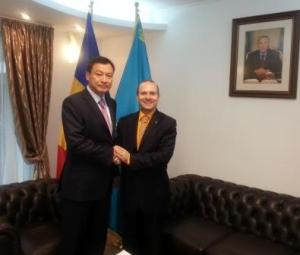
Intalnirea de protocol intre E.S.Ambasadorul Extraordinar si Plenipotentiar al Kazahstanului-Daulet Batrashev si Presedintele Director General al IRICE-Profesor Dr. Anton Caragea.
Răspuns: Relaţia dintre România şi Kazahstan se dezvoltă rapid şi continuu în direcţia corectă.
Pentru a ilustra acest fapt vreau să subliniez faptul că: în 2012, Preşedintele Kazahstanului a luat decizia de a ridica statutul Misiunii Diplomatice a Kazahstanului în România la rangul de ambasadă şi acum, în 2014, am fost trimis drept primul Ambasador al Kazahstanului în ţara dvs.
Este aceasta o dovadă că evoluţia legăturilor în plan diplomatic este una în mod clar ascendentă.
Aş mai vrea să mai adaug că: investiţiile KazMunayGaz International-KMG (fostul Rompetrol) sunt actualmente cea mai mare investiţie a Kazahstanului în afara graniţelor noastre şi că avem în plan să continuăm şi să dezvoltăm investiţiile noastre în România.
Voi reitera faptul că Memorandumul semnat între statul român şi KMG International creează un fond bilateral de investiţii, ceea ce va creşte dramatic şi diversifica totodată investiţiile kazahe în România şi vor crea o bază solidă pentru dezvoltarea relaţiilor bilaterale.
Dacă mai adăugăm la acesta, realitatea faptului că dialogul politic între ţările noastre este bazat pe o înţelegere perfectă şi că istoria noastră recentă este marcată de momente ce marchează prietenia bilaterală precum sprijinul României pentru Preşedinţia Kazahstanului la Organizaţia pentru Securitate şi Cooperare în Europa (OSCE), prezenţa la nivel înalt a Preşedintelui şi Primului Ministru ai României la Întâlnirea la nivel înalt de la Astana, în 2010 şi avem deja o imagine a unui dinamism al relaţiei.
În Kazahstan s-a notat sprijinul entuziast al României faţă de iniţiativa Excelenţei Sale Preşedintelui Nursultan Nazarbayev de a construi o platformă de securitate şi cooperare în Europa şi Asia, bazată pe modelul OSCE şi al Organizaţiei de la Shanghai, propunere ce va fi benefică pentru România, pentru Kazahstan şi pentru întreaga lume.
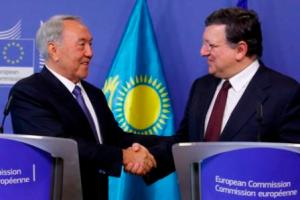
Presedintele Kazahstanului-Nursultan Nazarbayev, un oaspete apreciat si respectat in intreaga Uniune Europeana.
În concluzie, voi mai sublinia doar faptul că România şi Kazahstanul îşi încep acum o călătorie comună, pe drumul prieteniei strategice şi bazandu-se pe viziunea politică comună, pe interesele economice împărtăşite şi pe principiile de politică externă, asumate de comun acord.
Întrebare: Ce ar trebui românii să ştie despre Kazahstan?
Dacă toată lumea ştie despre îndelungata istorie a ţării dumneavoastră drept teritoriul Drumului Mătăsii, apoi drept stat al marilor Hanilor Kazahi din Turkestan, ce ar trebui să ştie românii despre Kazahstanul de azi?
Răspuns: Kazahstanul de azi este vibrant, modern şi o ţară în rapidă dezvoltare, un stat-cheie în regiune.
Preşedintele Nursultan Nazarbayev are o imagine a ţării noastre drept: Leopardul de zăpadă, îmbogăţit cu eleganţă vestică, multiplicată de înaltul nostru nivel de dezvoltare, înţelepciune şi tenacitate.

Presedintele Nursultan Nazarbayev-un adevarat lider al lumii turcice.
Nu pot găsi cuvinte mai potrivite pentru a descrie viziunea noastră, a kazahilor, pentru cum va arăta ţara noastră, mâine.
Kazahstanul de astăzi doreşte să devină principalul centru economic, între Asia şi Europa, punte între piaţa emergentă a Chinei şi Europa dezvoltată.
Noul Drum al Mătăsii, drum al bogăţiei şi comerţului, se va întinde dea lungul a 8.445 kilometri din care: 2.233 km în Rusia, 2.787 km pe teritoriul Kazahstanului şi 3.452 de km în China.
Această gigantică autostradă modernă va trece prin Aktobe, Kyzylorda, Kazahstanul de sud, Zhambyl si regiunea Almaty din Kazahstan.
Acest conector, între Europa şi China, merge pe drumul fostelor caravane ale Drumului Mătăsii, marea autostradă a istoriei ce mergea din China în Orientul Mijlociu şi Europa şi care a fost extrem de circulată, vreme de 14 secole.
Noul Drum al Mătăsii va duce la creşterea schimburilor, va impulsiona comerţul şi va conecta mai repede şi mai bine masele de pământ ale Europei şi Asiei şi va deveni nu doar o alternativă economică viabilă, dar va genera şi locuri de muncă, va ajuta pe toţi oamenii să se bucure de beneficiile acestui drum, va creşte nivelul de trai şi va asigura pentru regiunile noastre prosperitate şi stabilitate politică.
Semnificaţia acestui nou Drum al Mătăsii este mult mai mare decât aceea de simplu pod al comerţului şi schimbului de bunuri, dar va ajuta şi la stabilirea unei punţi a bunei înţelegeri şi a dialogului între popoarele Europei şi ale Asiei.
Această iniţiativă comercială şi economică este completată şi în zona politică de apelul Preşedintelui Nazarbayev pentru o mai bună înţelegere şi un dialog susţinut între Europa şi Asia, apel cunoscut drept Conferinţa pentru Interacţiune şi pentru Stabilirea de Măsuri de Creştere a Încrederii în Europa şi Asia.
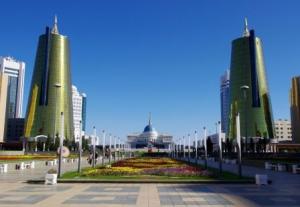
Astana: o capitala a minunilor, o capitala a viitorului!
Această propunere marchează clar faptul că politica externă a Kazahstanului se concentrează nu doar pe dezvoltarea economică şi facilitarea coridoarelor de comerţ între Europa şi Asia, dar urmăreşte ca prin dialog, să creeze un climat de bună înţelegere, evitând conflictele şi punând bazele unei platforme pentru dialog între statele Asiei şi Europei.
Iniţiativa ţării noastre este bazată pe succesul preşedinţiei la Organizaţia pentru Securitate şi Cooperare în Europa în 2010 şi pe activitatea noastră, eficientă, în cadrul Organizaţiei de Cooperare de la Shanghai şi a Uniunii Economice Euroasiatice.
Noi propunem ca experienţa noastră în dialog şi în eficientizarea activităţii organizaţiilor internaţionale în serviciul păcii şi dezvoltării mondiale, să fie folosită şi sperăm că întreaga lume observă efortul Kazahstanului.
Aş vrea totodată să subliniez şi eforturile noastre în domeniul promovării dialogului religios şi al bunei înţelegeri.

Întrunit la iniţiativa Preşedintelui Nursultan Nazarbayev, Conferinţa religioasă de la Astana-CONGRESUL LIDERILOR RELIGIILOR TRADIŢIONALE ŞI UNIVERSALE – a devenit cea mai impresionantă şi eficientă conferinţă mondială ce a stabilit reguli şi direcţii ale dialogului inter-religios- Ambasador Daulet Batrashev.
Vreau să amintesc şi preşedinţia noastră, plină de succese şi extinsă vreme de doi ani, în fruntea Organizaţiei Conferinţei Islamice în vremuri dificile, cînd am ajutat lumea islamică să se concentreze pe cultură, educaţie şi mostenirea islamică drept factori unificatori, drept fundamente ale unei mai bune şi corecte înţelegeri a Islamului în lume.
Kazahstanul nu a fost satisfăcut doar să îşi păstreze moştenirea religioasă, dar s-a implicat activ şi în găsirea unei forme de dialog deschis şi continuu al religiilor şi liderilor religioşi tradiţionali.
La iniţiativa Preşedintelui Nursultan Nazarbayev, Conferinţa religioasă de la Astana-CONGRESUL LIDERILOR RELIGIILOR TRADIŢIONALE ŞI UNIVERSALE- a devenit, cu sprijinul şi prezenţa tuturor liderilor religioşi mondiali, cea mai impresionantă şi eficientă conferinţă mondială, ce a stabilit reguli şi direcţii ale dialogului inter-religios.
Preşedintele Nazarbayev a adus la un loc reprezentanţi ai curentelor religioase, de pe toate continentele şi din toate colţurile lumii într-un dialog deschis şi durabil.
Simplu fapt că acestă serie de întâlniri continuă, fără întrerupere, din 2013 este extrem de grăitor.
Ideea noastră de bază este: să folosim acestă platformă pentru a lansa un apel la pace, înţelegere şi toleranţă ca principii stabile ale existenţei umane, să obţinem respect mutual şi toleranţă între religii, confesiuni şi naţiuni şi să ne opunem folosirii ideilor religioase pentru a provoca conflicte.
Nu pot decât să sper că ideile noastre se vor dezvolta şi în viitor şi că CONGRESUL LIDERILOR RELIGIILOR UNIVERSALE SI TRADIŢIONALE va continua a fi un fundament solid în lumea religiilor.
Întrebare: Este absolut incredibilă această prezentare a rolului Kazahstanului de astăzi în lume, de la economie, la politică externă, cultură şi dialog inter-religii.
Ţara dvs. continuă să lase o amprentă durabilă în lumea de astăzi.
Care sunt planurile de viitor ale Kazahstanului, inima Asiei Centrale, în anii ce vin şi cum vedeţi dvs. personal planurile de dezvoltare a relaţiei de prietenie România-Kazahstan ?
Răspuns: Viitorul se arată a fi strălucit, deoarece sperăm să putem continua toate iniţiativele destinate să dezvolte pentru Kazahstan o reţea de prieteni în întreaga lume, ceea ce ne va permite să ne îndeplinim rolul de forţă a moderaţiei, a democraţiei şi a dezvoltării în întreaga lume.
Ţinta noastră este să conducem prin puterea exemplului. Voi reaminti pentru cititorii dvs. faptul că ţara noastră a fost prima ţară din lume, care a renunţat, voluntar, prin Decretul din 1991 a Preşedintelui Nazarbayev, la arsenalul de arme atomice rămase după dispariţia Uniunii Sovietice.
Noi, prin voinţa noastră liberă, am acceptat să demontăm armamentul atomic, să evacuăm materialul ce putea fi folosit pentru înarmare şi am oprit experinţele nucleare ce se desfăşurau în poligonul de la Semipalatinsk.
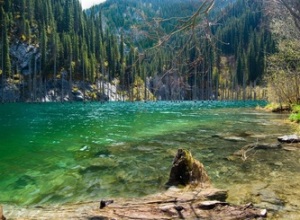
Frumustetile Kazahstanului cuceresc lumea.
Acestea sunt contribuţii extrem de importante, pe care Kazahstanul le aduce la construcţia unei lumi sigure şi stabile, o lume fără arme nucleare
În 2012, la Summit-ul de la Seul, ne-am oferit experienţa pentru a ajuta alte naţiuni să accepte conceptul unei lumi libere de arme nucleare.
Ne-am oferit să gazduim o bancă pentru uraniul îmbogăţit în Kazahstan, sub auspicile Agenţiei Internaţionale pentru Energie Atomică, ceea ce va ajuta la a împiedica traficul cu materiale nucleare şi va garanta folosirea materialelor nucleare pentru scopuri paşnice.
Aceasta este o altă dovadă a faptului că Kazahstan-ul doreşte să aibă o acţiune la nivel global, conducând prin forţa exemplului.
În relaţia bilaterală, agenda mea este extrem de încărcată şi pot enumera pentru informarea cititorilor dvs: necesitatea de a dezvolta dialogul politic bilateral, dezvoltarea prezenţei economice a Kazahstanului în România, folosind exemplul de succes al prezenţei Rompetrol în ţara dumneavoastră.
KGM International este astăzi unul din cei mai importanţi contributori la bugetul României, cu o sumă ce depăşeşte 1 miliard de euro anual, oferind poporului român posibilitatea unei vieţi mai bune.
Dacă adăugăm la acesta numarul de slujbe create în industria românescă şi locurile de muncă conexe, ajungem la aproape 100.000 de locuri de muncă oferite românilor.

Cred că aceste cifre explică, prin ele însele, influenţa benefică a investiţiilor kazahe în economia românească.
Ne putem imagina cum această relaţie se va dezvolta, odată cu începerea unor noi investiţii în economia României, suntem deja cel de al doilea investitor in economia României şi la finalul acestui proces de noi investiţii, vom deveni primul investitor în economia dvs.
Suntem totodată determinaţi să ajutăm la echilibrarea balanţei de schimburi a României cu Kazahstanul şi sperăm că produsele României îşi vor descoperi drumul spre piaţa din Kazahstan.
Produse renumite la nivel mondial precum: vinul românesc, produsele agricole, produsele industriale de mare calitate sau mobilierul românesc, ce are o mare tradiţie pe piaţa noastră şi acestea sunt doar câteva din produsele din ţara dvs. pe care am fi foarte fericiţi să le vedem pe piaţa din Kazahstan.
În plus le spun viitorilor parteneri de afaceri ai Kazahstanului să nu uite că ţara noastră este situată în centrul unei uriaşe zone fără taxe vamale, în inima Eurasiei şi a uniunii ei vamale, ceea ce înseamnă că produsele lor se vor regăsi nu doar în Kazahstan, dar şi în Rusia şi Belarus, totodată.
Vorbim deseori de faptul că România trebuie să devină centrul prin care produsele din Kazahstan se vor răspândii în întreaga Europă, dar e la fel de adevărat că şi produsele şi serviciile româneşti pot beneficia de regimul nostru, relaxat de regulamente şi legislaţie fiscală şi zone fără taxe vamale şi transformă Kazahstanul într-un capăt de pod pentru a cuceri cu produsele lor întreaga Asie.
Este un gînd îndrăzneţ, dar realist!
Aş vrea să închei prin a spune poporului român că: va avea întotdeauna în Kazahstan un prieten ferm şi verificat la testul timpului şi că tot ce am construit în relaţia bilaterală, de la cooperarea economică, la diplomaţie şi cooperare internaţională trebuie cimentat şi prin interacţiunea umană.
Kazahstanul este mult mai mult decît doar o ţară dezvoltată şi bogată, este totodată o ţară cu un popor minunat, cu frumuseţi naturale magnifice şi locuri de o frumuseţe fără egal şi un loc minunat, pentru a fi descoperit şi vizitat pe îndelete.
Kazahstanul vă aşteaptă cu braţele deschise !
November 17, 2014
Posted by centrulspri |
Blackseanews Agency, Diplomatie, Economia Romaniei, Institutul de Relatii Internationale si Cooperare Economica, Kazahstan, Nursultan Nazarbayev, Relatii Internationale, Turism, Universitati, WORLD EXPO 2017 | Conferinţa religioasă de la Astana-CONGRESUL LIDERILOR RELIGIILOR TRADIŢIONALE ŞI UNIVERSALE, Interviu cu Excelenţa Sa Ambasadorul Kazahstanului în România-Dl.Daulet Batrashev, KazMunayGaz International-KMG (fostul Rompetrol), Memorandumul semnat între statul român şi KMG International creează un fond bilateral de investiţii, Organizatiei de Cooperare de la Shanghai, Presedintele Kazahstanului-Nursultan Nazarbayev, Presedintele Nursultan Nazarbayev-un adevarat lider al lumii turcice, prezenţa la nivel înalt a Preşedintelui şi Primului Ministru ai României la Întâlnirea la nivel înalt de la Astana, Preşedintelui Nursultan Nazarbayev, Preşedinţia Kazahstanului la Organizaţia pentru Securitate şi Cooperare în Europa (OSCE), un oaspete apreciat si respectat in intreaga Uniune Europeana, Uniunii Economice Euroasiatice |
Leave a comment
On 27 October 2014, the taking office protocol meeting, between Prof.Dr.Anton Caragea, President Director-General of Institute of International Relations and Economic Cooperation and H.E. Daulet Batrashev, Ambassador of Republic of Kazakhstan, had taken place.
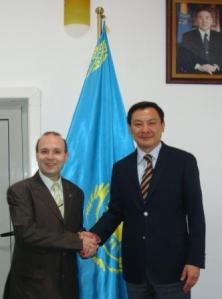
Prof.Dr.Anton Caragea, President Director-General of Institute of International Relations and Economic Cooperation and H.E. Daulet Batrashev, Ambassador of Republic of Kazakhstan.
In the beginning of the meeting Prof.Dr.Anton Caragea express his heartily congratulation, on the occasion of beginning of mandate of H.E. Daulet Batrashev, as the first Ambassador of Kazakhstan to Romania, a nomination that constitutes an unmistakable sign of a successful strategic relation.
In his speech Professor Dr. Anton Caragea had appreciated that between Romania and Kazakhstan we are witnessing a large area of common interests such as: a strong and stable economic relation, that is making Kazakhstan the second strategic foreign investor in Romanian economy, an open, sustained and substantial political dialogue and a common sentiment of brotherhood. All this are elements that could serve as a bridge of good understanding between the two nations.
The Romania- Kazakhstan strategic friendship must be an example of constructing strong relations between Romania and Central Asia.
In the last decade, the bilateral dialogue with Kazakhstan was exceptional in amplitude, seriousness and efficacy and this bilateral long term commitment it constitute an obligation for both of the countries to continue building this framework of dialogue and friendship.
H.E. Daulet Batrashev had expressed his appreciation for the encouragement`s offered by Prof. Dr. Anton Caragea and had stated that the vision of an economic, politic and cultural special relationship, between Romanian and Kazakhstan, is a mutual shared vision.
The dialogue had continued on concrete aspects and analyses of economic, political and cultural bilateral relations and on ways of fostering and enriching this dialogue on to the future.
Concrete fallow-up actions where established as: creating a special press file dedicated to the National Day of Kazakhstan, broadcasting special documentaries about important personalities of historical significance for Kazakhstan, expanding cultural and educational cooperation, receiving an important parliamentarian delegation and fostering the dialogue in the diplomatic sphere.
An important item on the agenda was establishing a special conference to mark the 550 years of statehood of Kazakhstan, an important landmark for modern Kazakhstan and the parties agreed on a calendar of events destined to transform 2015 in the KAZAKHSTAN CELEBRATION YEAR IN ROMANIA.
The dialogue led the foundations of a successful diplomatic mandate and offered the solutions necessary to foster and develop the friendly relations between Romania and Kazakhstan and constitutes a promise to continue a successful direction on Romanian diplomatic action.
November 2, 2014
Posted by centrulspri |
Astana, Blackseanews Agency, Diplomacy, Eastern Europe, Ecology, Economy, History, Informations, Institute of International Relations and Economic Cooperation, International Relation, Kazakhstan, Leaders, Mass media, News, Nursultan Nazarbayev, Oriental Art, OSCE-Organisation for Security and Cooperation in Europe, Politics, Religion, Romanian economy, Romanian Foreign Policy, Tourism, WORLD EXPO 2017 | Ambassador of Republic of Kazakhstan, an important landmark for modern Kazakhstan, Anton Caragea, appreciated H.E. Daulet Batrashev, are all perfect landmarks of this special relationship, as the first Ambassador of Kazakhstan to Romania, between Prof. Dr. Anton Caragea, broadcasting special documentaries about important personalities of historical significance for Kazakhstan, creating a special press file dedicated to the National Day of Kazakhstan, Daulet Batrashev, expanding cultural and educational cooperation, H.E. Daulet Batrashev had expressed his appreciation for the encouragement`s offered by Prof. Dr. Anton Caragea, Institute of International Relations and Economic Cooperation, Kazakhstan, KAZAKHSTAN CELEBRATION YEAR IN ROMANIA, Kazakhstan the second strategic foreign investor in Romanian economy, on the occasion of beginning of mandate of H.E. Daulet Batrashev, President Director-General of Institute of International Relations and Economic Cooperation and H.E. Daulet Batrashev, prof.dr.Anton Caragea, Prof.Dr.Anton Caragea express his heartily congratulation, receiving an important parliamentarian delegation and fostering the dialogue in the diplomatic sphere, Romania- Kazakhstan strategic friendship must be an example of constructing strong relations between Romania and Central Asia, ROMANIA-KAZAKHSTAN: A STRATEGIC FRIENDSHIP REASSERTED, the 550 years of statehood of Kazakhstan, the Romanian vote in favor of Astana hosting World Expo 2017 and the grandiose celebration of the 20 years of diplomatic relations between the two countries, the support offered by Romania to the outstanding Kazakhstan Presidency of O.S.C.E. (Organization for Security and Cooperation in Europe), the taking office protocol meeting |
Leave a comment
 Tourism in Kazakhstan-a way further for the country!
Tourism in Kazakhstan-a way further for the country! Professor Dr. Anton Caragea is signing the european tourism meeting call
Professor Dr. Anton Caragea is signing the european tourism meeting call



































 A PERFECT FRAGRANCE! DALI HAUTE PARFUMERIE-WORLD FAVORITE PERFUME FOR 2017. This is a unique Collection of five perfumes inspired by the jewelry creations of Salvador Dali, which perfectly represent the genius of this extraordinary artist.
A PERFECT FRAGRANCE! DALI HAUTE PARFUMERIE-WORLD FAVORITE PERFUME FOR 2017. This is a unique Collection of five perfumes inspired by the jewelry creations of Salvador Dali, which perfectly represent the genius of this extraordinary artist. ASTANA-CAPITAL OF THE FUTURE. HOST OF EXPO 2017
ASTANA-CAPITAL OF THE FUTURE. HOST OF EXPO 2017 BEST FASHION CREATOR-GENTLEMEN'S CORNER
BEST FASHION CREATOR-GENTLEMEN'S CORNER Blackseanews
Blackseanews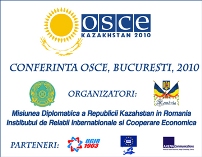 Bucharest Conference on OSCE 2010. A decisive year for Europe. Kazakhstan Presidency
Bucharest Conference on OSCE 2010. A decisive year for Europe. Kazakhstan Presidency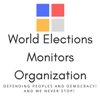 CAMBODIA FREE AND FAIR ELECTIONS
CAMBODIA FREE AND FAIR ELECTIONS CASA PANCIU
CASA PANCIU CONFERENCE ON PEACE AND SECURITY IN EUROPE AND ASIA
CONFERENCE ON PEACE AND SECURITY IN EUROPE AND ASIA COTNARI-HOUSE OF WINES
COTNARI-HOUSE OF WINES Diplomat Club
Diplomat Club DIRECT DE LA FERMA
DIRECT DE LA FERMA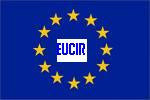 European Council on International Relation
European Council on International Relation EUROPEAN JOURNAL OF TOURISM
EUROPEAN JOURNAL OF TOURISM EUROPEAN TOURISM AWARDS
EUROPEAN TOURISM AWARDS EUROPEAN UNION COUNCIL ON TOURISM AND TRADE
EUROPEAN UNION COUNCIL ON TOURISM AND TRADE Institute of International Relations and Economic Cooperation
Institute of International Relations and Economic Cooperation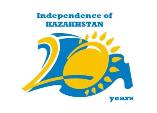 KAZAKHSTAN 20 YEARS OF INDEPENDENCE. PEACE AND CONSTRUCTION
KAZAKHSTAN 20 YEARS OF INDEPENDENCE. PEACE AND CONSTRUCTION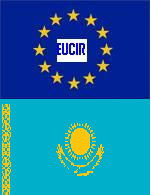 KAZAKHSTAN PRESIDENTIAL ELECTIONS 2011. EUROPEAN MONITORING MISSION
KAZAKHSTAN PRESIDENTIAL ELECTIONS 2011. EUROPEAN MONITORING MISSION KAZAKHSTAN-THE LEOPARD OF CENTRAL ASIA by professor Dr. Anton Caragea
KAZAKHSTAN-THE LEOPARD OF CENTRAL ASIA by professor Dr. Anton Caragea OSCE. KAZAKHSTAN PRESIDENCY. ROMANIAN SUPPORT BY PRESIDENT OF CONFERENCE ON OSCE-ANTON CARAGEA
OSCE. KAZAKHSTAN PRESIDENCY. ROMANIAN SUPPORT BY PRESIDENT OF CONFERENCE ON OSCE-ANTON CARAGEA ROMANIAN DIPLOMATIC BULLETIN
ROMANIAN DIPLOMATIC BULLETIN Sfantul si Cultul sfintilor
Sfantul si Cultul sfintilor Thinking Europe- bestseller
Thinking Europe- bestseller WILD TIME
WILD TIME WORLD BEST TOURIST DESTINATION
WORLD BEST TOURIST DESTINATION WORLD CAPITAL OF CULTURE
WORLD CAPITAL OF CULTURE WORLD TOURISM NEWS
WORLD TOURISM NEWS